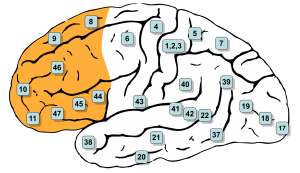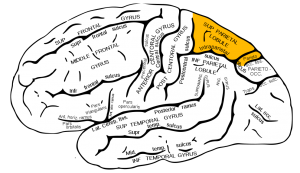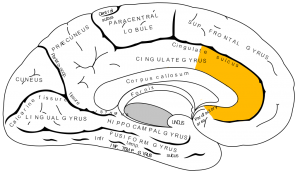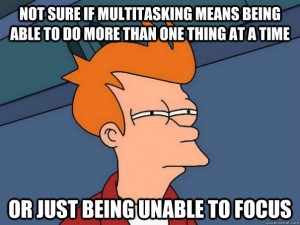EXECUTIVE FUNCTION: TASK SWITCHING AND MULTI-TASKING
Executive functions serve one ultimate purpose; to conduct an individual’s most crucial cognitive processes. The functions instruct multiple regions to perform, or be silenced, and is constantly coordinating the synchronization of activity, further optimizing an individual’s performance in the series of everyday internal and external communication and action. More specifically, is theorized to be an outcome of multiple competing biases rather than the presence of a controller. Decisions may arise out of interaction out of an interaction between bottom-up processing and top-down processing.
Before delving into the functions involved with task switching multi-tasking and the potential dangers it is first imperative to establish the role of schemas within executive function. A schema, or an organized set of stored information, is essential in creating and carrying out our everyday tasks. Schemas are both constantly being created as well as automated. Due to the fact that certain schemas can become automatically retrieved, individuals are then able to task switch at a rapid rate. By definition, task switching is when one discards of a previous schema and establishes a new one. During an individual’s everyday routine, task switching is being constantly stimulated. For example, and to put it simply, an individual will focus on achieving one specific goal after another. A multi-dimensional extension of task switching, multitasking, the main subject of discussion, can be regarded as an individual maintaining future goals while current goals are being dealt with. According to Psychology Today, there is an extensive debate regarding the validity of the term “multi-tasking.” For years, researchers have been investigating whether multi-tasking is truly an ability we can cognitively balance.
FOUR MAJOR AREAS INVOLVED IN TASK SWITCHING
During task switching, activity in the brain is stimulated in four major areas. First the pre-frontal cortex, which is involved in shifting and focusing your attention, and selecting which task to do when. Next, the posterior parietal lobe activates rules for each task you switch to, the anterior cingulate gyrus monitors errors, and the pre-motor cortex is preparing for you to move in some way.
Due to the number of circuits stimulated to decode retrieved information and subsequently acted upon, multi-tasking is far less efficient than we believe is possible. Most of the time we are overestimating our multi-tasking abilities. In this clip presented below, Ellen Degeneres does a comical sketch on the “Challenges of Multi-tasking.”
ELLEN DEGENERES: CHALLANGES OF MULTI-TASKING
While this monologue is an over exaggeration of multi-asking for the purpose of comic relief, the majority of what she touches on, accurately reflects our technologically dominated society and its effects on individuals. Increasingly, technology allows the individual to believe they can achieve multiple tasks at once. Unfortunately, there is great error to our trials in attempt to conquer all our goals at once. According to Dr. Gary Small, Professor of Psychiatry and Aging at the UCLA School of Medicine, the mental process related to multitasking called partial continuous attention (PCA) is difficult to resist because “our dopamine circuits that are involved in reward systems drive it because we want that exciting new bit of information.” Naturally our minds are evolutionarily driven to achieve our immediate goals. Therefore, because we are given a numerable amount of tools to see these goals through, we do not hesitate to seek informational stimulus and the following internal satisfaction achieved once it is obtained.
DANGERS OF MULTI-TASKING: EXCESSIVE STIMULATION
Although our desire to seek out constant motive and reward is encouraging, it is becomes unrealistic when we are cognitively unable to balance the excessive stimulus self-generated and sought out. The three main consequences that follow multi-tasking, are lack of focus, increased stressed levels, and memory impairment.
LACK OF FOCUS
When ones concentrated train of thought is disrupted by multiple distractions, “it requires more time to come back to one task, find where you left off, and try to recreate your thought pattern” (C, Deeb., Demand Media).
For example, someone is driving using a GPS system for direction, then the passenger in the back asks the driver a question, but the music’s too loud. Suddenly, the driver all at once, does not want to miss their freeway exit, but wants to answer the passengers question, yet needs to turn down the music to do so. This circumstance, which many have endured, can easily end in an accident.
MEMORY IMPAIRMENT
When different forms of information are being delivered to an individual simultaneously, your brain is unable to differentiate between what is important and what isn’t, therefore damaging possibly both your short and long-term memory.
An example of this goes as follows; one night a student’s favorite show premieres on television that they have been dying to watch. However, they desperately need to do their math homework, therefore the student does both. Consequently, the student ends up doing both “tasks” half satisfactory as they originally wanted, not truly understanding the meaning or purpose of either one.
STRESS LEVEL INCREASE
As we have all experienced, the more responsibilities thrown at us, the more intense our stress becomes. “Anxiety [is] associated with multitasking… reducing productivity and can negatively impact..” the personal environment an individual interacts with and responds to.
CONCLUDING STATEMENT
In all fairness to those who multi-task, it can be achieved. According to Ward, when an individual preforms one automated task while balancing another that the individual is not equally as proficient at, it is possible to achieve positive results. We have all been in that moment when we need to get tasks done in the most timely manner viable. However, the take away? Never believe those who self-proclaim they are an “the ultimate multi-tasker.” Walk away feeling bad for them as more bad than good comes from engaging in it.
REFERENCES
Ward, J. (2015) The Student’s Guide to Cognitive Neuroscience. Psychology Press, London and New York. 3rd ed. pp. 352-354
The True Cost of Multi-Tasking
May I Have Your Partial Continuous Attention Please? (The Dangers of Multitasking and Mental Stress)







